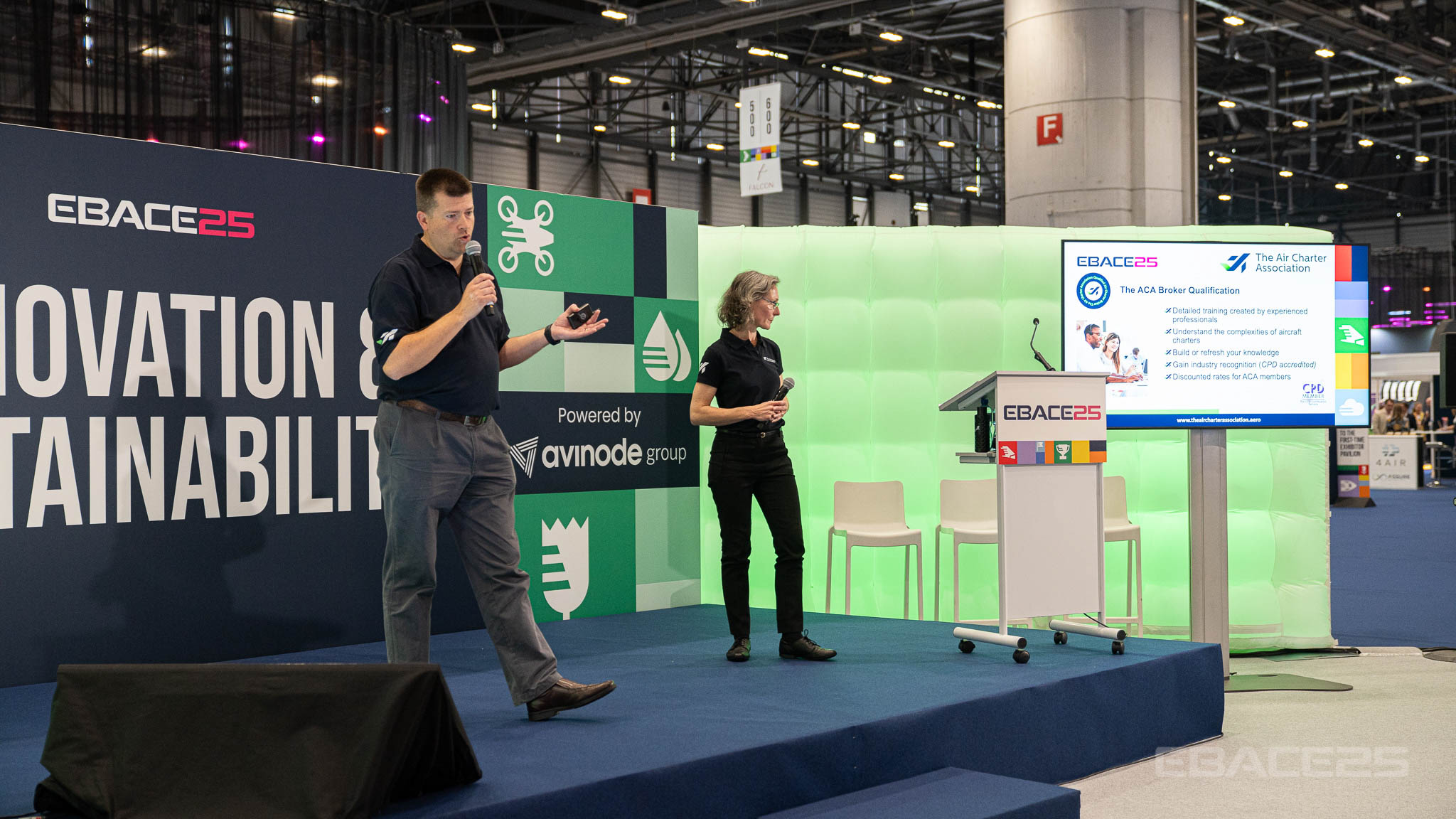European Business Aviation is seizing new growth opportunities whilst adapting to evolving regulatory environments, geopolitical complexity and heightened public scrutiny. Today at EBACE25, the ‘State of the Industry: Global & European Market Trends in Business Aviation’ panel joined leading executives to unpack the forces shaping the sector’s current trajectory.
Moderated by Mike Stones, Group Editor at Corporate Jet Investor (CJI), the session welcomed Pascal Bachmann, SVP Sales EMEA at Jetcraft; Oliver King, CEO at Avinode; Holger Krahmer, Secretary General at EBAA; and Pascal Lhoest, Regulatory Affairs Executive at NetJets. Together, the speakers delivered a wide-ranging conversation that spanned market data, political dynamics, environmental pressures and the global perception of Business Aviation.
Panellists acknowledged signs of enduring growth, marked by increased flight hours and aircraft transactions, and a new generation of users and owners. Showcasing Jetcraft data, Bachmann demonstrated strong momentum in aircraft sales, driven not only by the transfer of generational wealth but also the strategic value business jets offer in an era of congested commercial travel.
Bachmann said: “Jet sales reflect optimism. Buyers below the age of 45 have doubled in the past 10 years globally, with a preference of larger cabin aircraft and the need to travel far and fast.”
Commenting on a fast-evolving market, King described the level of uncertainty in Business Aviation operations. “Despite new EU taxation bringing about new challenges, demand for private air travel is unchanged,” he said. “I’d love to see some stability in the market this year. Industry stakeholders and trade associations coming together to actively promote the industry’s agenda is where we’ll see a real difference.”
From an operator’s perspective, NetJet’s Lhoest offered valuable insight into the daily realities and long-term planning that comes with scale. “We’re facing a complex geopolitical and regulatory operating environment, and client demands are changing. With Sustainable Aviation Fuel (SAF), for example, our customers want to see change, with the option to purchase SAF. We need to shift our mindset to ensure we can match new requirements,” he said.
Krahmer addressed the regulatory and reputational headwinds that continue to challenge the sector, reflecting on the growing hostility with some political circles. “This industry is too often misrepresented,” Krahmer said. “Our role at EBAA is to help shift that narrative, through evidence, engagement, and better communication with both the public and policymakers.”
Highlighting the importance of industry collaboration, Lhoest added: “Shows like EBACE demonstrate the resilience of our market and we need to continue coming together in this way. Survival of the industry relies on advocacy and that’s what we’re doing this week.”
The session concluded with a call for shared responsibility. All stakeholders, including manufacturers, operators, regulators and associations, have a role in shaping the future of Business Aviation in Europe.
For more information on how the EBAA is advocating for Business Aviation in Europe, visit: The European Business Aviation Association – Homepage









